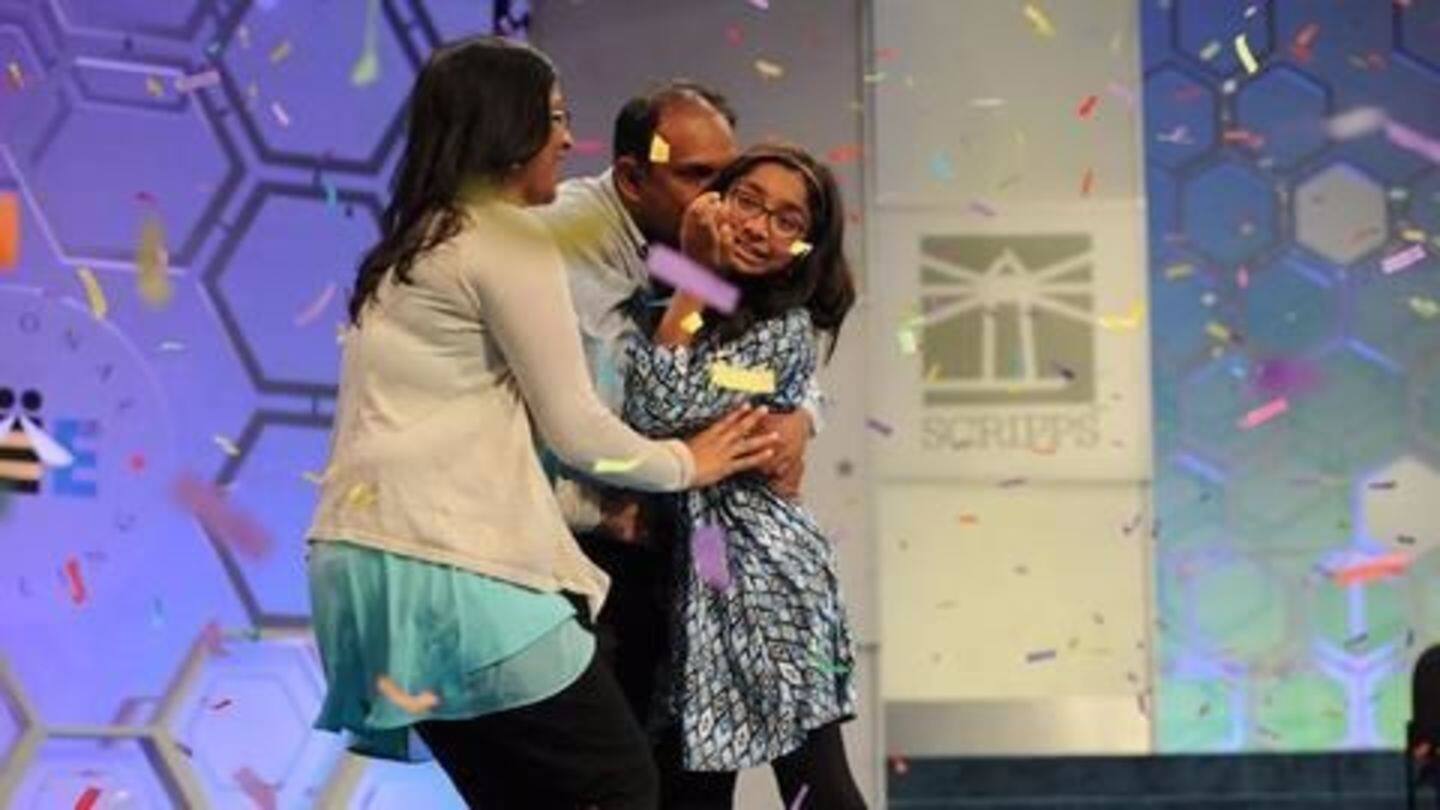
US Spelling Bee: Indian-American kid Ananya Vinay wins Scripps'17
What's the story
For the 13th year in a row, an Indian-American kid won the US National Spelling Bee. This time, it was 12-year-old Ananya Vinay from California. This was also the first time since 2013 that there emerged a solo-champion. For the last three years, there were joint-winners. Ananya will be rewarded with cash worth $40,000. How do Indian-origin kids manage to keep up this trend?
Do you know?
A brief history of India at the Scripps Spelling Bee
India's running dominance at the championship began in 1999, with the victory of Nupur Lala. Since then, there have been 22 winners with Indian heritage.
Championship
Ananya vs runner-up Rohan Rajeev
Ananya had participated in other spelling bees, particularly the NSF and the South Asian Spelling Bee, but hadn't won either. At the end, she was competing opposite 14-year-old Rohan Rajeev, both of whom dueled for about 20 rounds before he failed on "marram" (a type of grass). Ananya, meanwhile, took the title with "marocain" (a fabric made of ribbed silk, rayon or other yarns).
Data
Other Indian-origin winners at Scripps
Some of the Indian-origin winners at the Scrips National Spelling Bee in the last few years include Nihar Janga and Jairam Hathwar (2016), Gokul Venkatachalam and Vanya Shivashankar (2015), Ansun Sujoe and Sriram Hathwar (2014), Arvind Mahankali (2013), Snigdha Nandipati (2012) and Sukanya Roy (2011).
Trend
Why do Indian-origin kids keep winning?
Indians are known to focus more on studies and academic achievement rather than extra-curricular tasks. Despite their dominance in academic competitions, they are virtually absent from notable athletic or musical arenas. Immigrant parents, most highly-educated, tend to encourage similar traits. Moreover, more the attention Indian-origin kids get at the spelling bee, more the drive in the community to keep up the performance.
NSF
The India-based non-profit that helped
The India-based non-profit North South Foundation, established in 1989, has helped. Since 1993, it has hosted spelling bees where kids from first grade are allowed; in schools, only those in third grade and above can participate. It also conducts several competitions in a year, unlike other once-a-year events. By the time NSF participants are 9, they know thousands of more words than their peers.
2017
Meanwhile, the 2017 favorites who lost
It was Rohan's first time on that stage, but he had experience, and was mentored by a previous winner. Mira Dedhia, who finished third, couldn't script history as the first child of a previous competitor to win. An unexpected elimination was Shourav Dasari, who won at both minor-league bees. He fell at the fourth with "struldbrug" (a Jonathan Swift invention in 'Gulliver's Travels').
Words
Could you have spelt these words correctly?
The contestants grappled with several words during the final rounds. Some included "Cheiropompholyx" (eczema that affects skin of the hands and feet) and Durchkomponiert" (German. A song that isn't based on repetitions). "Tchefuncte" (a word related to a Native American tribe that lived in Louisiana during 600 BC-200 AD) and "Wayzgoose" (a printer's annual outing) also showed up.